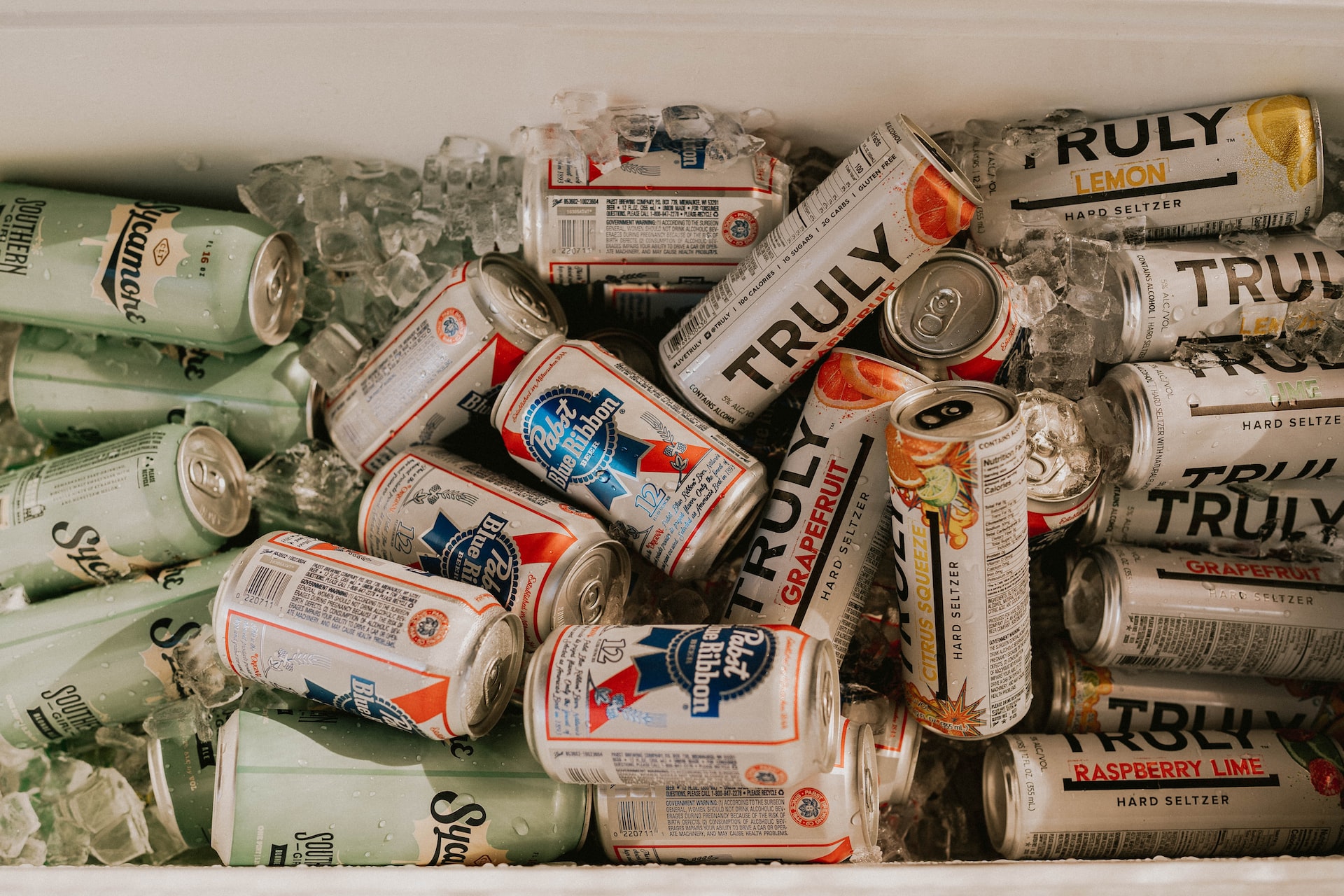Feb
6

Hard Seltzer is an increasingly popular alcoholic drink, thanks to its relatively low calorie and carb count. But just because Hard Seltzer may be considered a “healthier” alcoholic beverage (if such a thing exists) that doesn’t mean that it can’t be harmful – in particular, when it comes to your teeth.
In fact, Hard Seltzer combines three of the biggest culprits when it comes to poor oral health: sugar, alcohol and acid. So, is Hard Seltzer bad for your teeth? Let’s take a look at the facts.
What is Hard Seltzer?
Hard Seltzer is a type of alcoholic drink that is made using fermented cane sugar and carbonated water. In recent years, the success of various social media campaigns, combined with its effective branding as a “low calorie” alcohol, Hard Seltzer has become a popular drink of choice across Europe and the USA.
How does Hard Seltzer affect your teeth?
As most dental experts will tell you, drinking Hard Seltzer excessively can have an adverse effect on your teeth. This is because the fermenting process used to carbonate Hard Seltzer makes it an acidic beverage, and acid can erode the enamel of your teeth, making you more vulnerable to decay, plaque build-up and gum disease.
Secondly, many Hard Seltzer drinks are made with sweet, added flavourings, and most of these contain sugar. Sugar creates a breeding ground for bacteria in your mouth, again rendering you more susceptible to tooth decay and gum disease.
Lastly, alcohol itself is damaging to your teeth, and most Hard Seltzer beverages have an ABV of around 4-5%. While this isn’t excessively high (for example, most vodka brands contain around 40% ABV) it’s still enough to damage your teeth if consumed in excess, or without the protection of an efficient oral health routine.
Read More: What is oral thrush and how is it treated?
Is alcohol in general bad for my teeth?
Without question, excessive alcohol consumption contributes to poor oral health, and alcohol abuse is even one of the highest risk factors associated with oral cancer. Here are just a few other reasons why alcohol is bad for your teeth:
Dry mouth
Alcohol is a diuretic, which explains why being drunk = excessive trips to the bathroom. In short, alcohol consumption causes dehydration, which can lead to a decrease in saliva production. As saliva is the body’s natural defence against decay, a decrease in saliva increases your risk of infection, tooth decay, and gum disease.
Sugar
Nowadays, many alcoholic beverages – like Hard Seltzer – are flavoured with added sugars. From fruity cocktails to fizzy mixers, sugary alcoholic drinks make it easier for bacteria to multiply and spread in the mouth, increasing your risk of tooth decay and gum disease.
Teeth staining
If you’re careful about avoiding tobacco and coffee due to their reputations for teeth-staining, you should also limit your alcohol consumption. Alcoholic beverages like red wine can permanently discolour the teeth, requiring expensive, professional whitening treatments to restore the teeth’s naturally white colour.
Injury
Tooth loss caused by injury is incredibly common, and the chances of this occurring when drunk are substantially higher. Being drunk impedes your cognitive abilities, so you’re more prone to falling, tripping and hitting your face, which can often cause irreversible damage to your teeth.
Protecting your teeth while drinking alcohol
We understand that an abstinence approach isn’t exactly the most realistic piece of advice when it comes to alcohol. That said, there are a few changes that you can make to minimise the impact of alcohols like Hard Seltzer on your teeth.
Firstly, you can try to alternate each alcoholic beverage with something non-alcoholic, ideally water. Not only will this reduce the impact of alcohol-induced dehydration, but it will also reduce your teeth’s exposure to the damaging effects of sugary, acidic alcoholic drinks. By drinking water, you’ll help to rinse away the acid and sugar from your gums and teeth, making it more difficult for bacteria to linger and multiply.
Secondly, don’t drink in excess; while the odd alcoholic beverage here and there can be beneficial for your emotional wellbeing, excessive drinking can wreak havoc on your oral health – and on the rest of your body. If you’re going to drink alcohol, do so in moderation.
We’d also recommend that you maintain good oral hygiene habits every day, but especially on days where you’re drinking alcohol. While you might come home from the pub tired and ready for bed, spending 2-3 minutes brushing your teeth can help to prevent any plaque build-up on your teeth overnight.
Aside from taking precautions when drinking, you should also brush your teeth twice a day with fluoride toothpaste, and floss as often as your dentist recommends. By taking these few simple steps, you can help reduce the impact of Hard Seltzer and other sugary, alcoholic beverages on your teeth.
Read Next: What is Dental Abscess?











